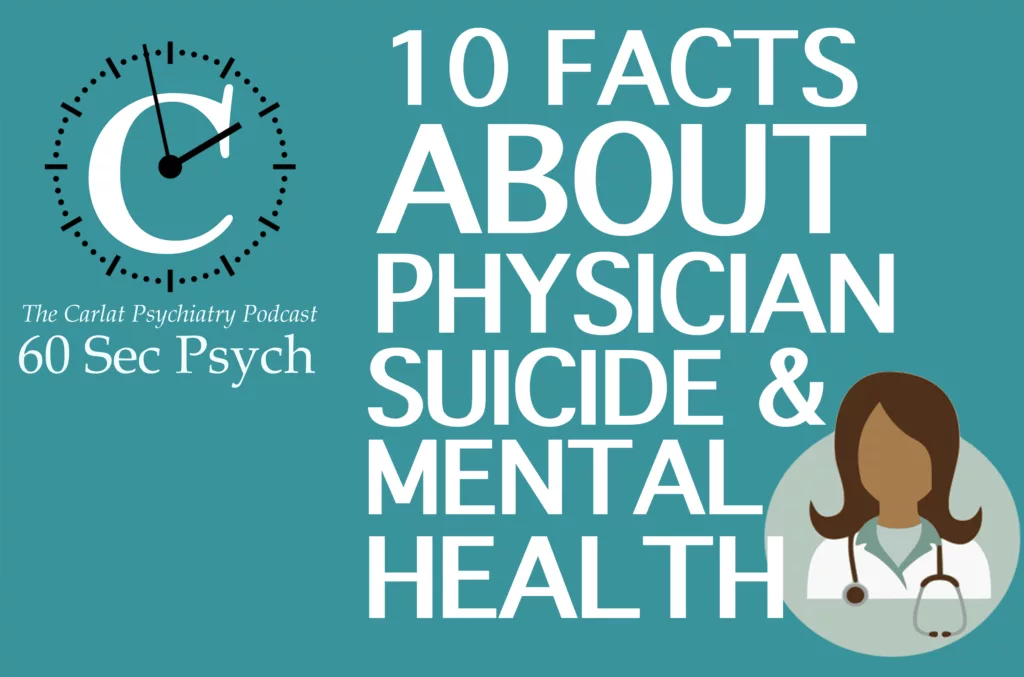This is a short episode with a link to these points from the American Foundation for Suicide Prevention in the description. Please share it far and wide with your colleagues.
Published On: 5/15/20
Resource Referenced: 10 Facts About Physician Suicide and Mental Health, American Foundation for Suicide Prevention from the American Foundation for Suicide Prevention
Rough Transcript:
1. Suicide generally is caused by the convergence of multiple risk factors — the most common being untreated or inadequately managed mental health conditions.
2. An estimated 300 physicians die by suicide in the U.S. per year.
3. Physicians who took their lives were less likely to be receiving mental health treatment compared with nonphysicians who took their lives even though depression was found to be a significant risk factor at approximately the same rate in both groups.
4. The suicide rate among male physicians is 1.41 times higher than the general male population. And among female physicians, the relative risk is even more pronounced — 2.27 times greater than the general female population.
5. Suicide is the second-leading cause of death in the 24–34 age range (Accidents are the first).
6. Twenty-eight percent of residents experience a major depressive episode during training versus 7–8 percent of similarly aged individuals in the U.S. general population.
7. Among physicians, risk for suicide increases when mental health conditions go unaddressed, and self-medication occurs as a way to address anxiety, insomnia or other distressing symptoms. Although self-medicating, mainly with prescription medications, may reduce some symptoms, the underlying health problem is not effectively treated. This can lead to a tragic outcome.
8. In one study, 23 percent of interns had suicidal thoughts. However, among those interns who completed four sessions of web-based cognitive behavior therapy, suicidal ideation decreased by nearly 50 percent.
9. Drivers of burnout include workload, work inefficiency, lack of autonomy and meaning in work, and work-home conflict.
10. Unaddressed mental health conditions, in the long run, are more likely to have a negative impact on a physician’s professional reputation and practice than reaching out for help early.
Got Feedback? Take the podast survey.


_-The-Breakthrough-Antipsychotic-That-Could-Change-Everything.webp?t=1729528747)



